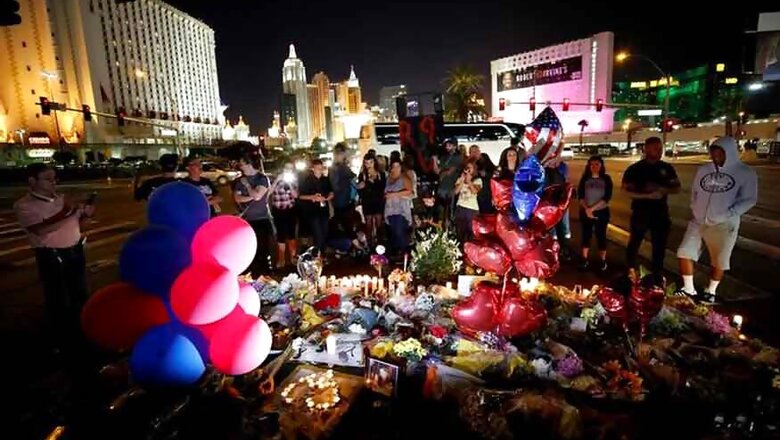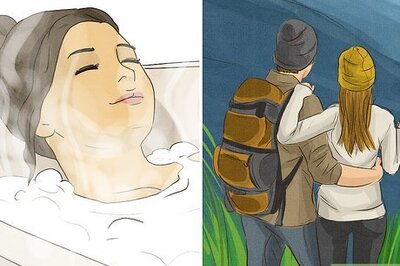
views
The Las Vegas gunman who killed 58 people and himself in the deadliest mass shooting in modern U.S. history was found to have had anti-anxiety medication in his system, the Las Vegas Review-Journal reported, citing a newly obtained autopsy report.
The autopsy also confirmed that the gunman, Stephen Paddock, a 64-year-old retired real estate investor and high-stakes gambler, died of a self-inflicted gunshot wound to the head, the newspaper said.
The Clark County Coroner's Office declined to immediately respond to a request from Reuters seeking a copy of the report, which the Review-Journal said it obtained after a judge ordered the medical examiner to release it last week to news organizations.
Paddock strafed a crowd of outdoor concertgoers with rapid-fire gunshots from his 32nd-floor suite at the Mandalay Bay hotel the night of Oct. 1 before police stormed his room to find him dead amid a large cache of high-powered weapons and ammunition.
Authorities said in the immediate aftermath of the rampage that the gunman had fatally shot himself but left no suicide note. No motive for the massacre, which also left several hundred people injured, has ever been established.
There was nothing in the Review-Journal's story on Friday to suggest that the autopsy records shed any additional light on what may have driven Paddock to carry out the bloodiest U.S. shooting spree on record.
It said that the Clark County coroner, John Fudenberg, had found anti-anxiety medication in Paddock's system, but the Review-Journal did not make clear whether further details of that finding were disclosed in the new autopsy report.
The newspaper reported several days after the killings that a local doctor had prescribed Paddock the drug diazepam, known by the brand name Valium, which is used for treating anxiety and alcohol withdrawal symptoms.
The Review-Journal also has reported that Fudenberg sent a sample of Paddock's brain tissue to Stanford University School of Medicine in October for a neuropathological examination to look for signs of possible disorders that might have explained Paddock's violent behavior.




















Comments
0 comment